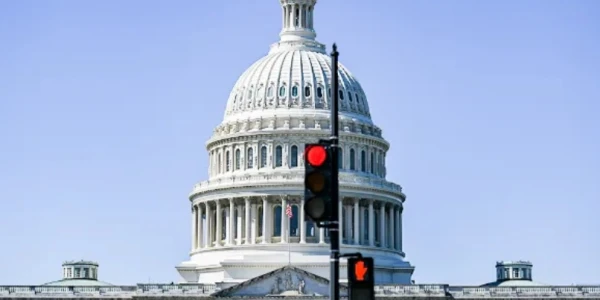
The next problem may be the dispatch of flights.
The federal shutdown in the U.S. has been ongoing since October 1. Government operations have been suspended due to Congress's failure to agree on a budget. Recently, yet another – the 13th – attempt was made to pass a temporary funding bill, which was unsuccessful: disagreements remain between Republicans and Democrats.
The sticking point has been healthcare. The parties have diverged on government spending for health insurance. The Democratic Party is demanding $350 billion to extend subsidies for the Obamacare program. They also want to reverse a $1 trillion cut to the federal Medicaid program, which pays for medical expenses for socially vulnerable individuals.
Republicans are seeking to impose strict bans on the use of budget allocations for promoting a woke agenda in education, funding for abortions and gender transition surgeries, as well as programs related to asylum and migrant support.
House Speaker Mike Johnson stated that if Democrats reject the government funding bill again, the U.S. will lose tens of billions of dollars daily starting in November. According to the Congressional Budget Office, by the end of 2026, the shutdown will result in economic losses of at least $7 billion.
If the government remains closed for six weeks, the economic damage will rise to $11 billion, and an eight-week shutdown will cost the economy $14 billion, media outlets quote the head of the office, Philip Swagel. States are already facing a number of consequences.
For instance, New York Governor Kathy Hochul declared a state of emergency to ensure funding for food stamps, as Americans stopped receiving federal assistance due to the ongoing government shutdown starting November 1. The shutdown jeopardizes benefit payments under the SNAP program (Supplemental Nutrition Assistance Program) for nearly 42 million Americans, notes the British newspaper The Guardian.
Johnson, in turn, stated that funds for paying American military salaries are nearly depleted. The FBI has been forced to slow down or completely halt some investigations, creating risks for national security. Additionally, a shortage of air traffic controllers due to the shutdown has led to flight delays. According to The New York Times, the most significant staffing issues have been observed at Orlando International Airport.
The U.S. President emphasized that it is time to end the tradition of the "filibuster" to bypass the tactics of Democratic senators amid the ongoing shutdown. "Now it's time for Republicans to play their 'Trump card' and go for what is called the 'nuclear option' to end the filibuster and end it now," media outlets quote the head of the White House.
Since 1977, the federal government of the U.S. has ceased funding more than 20 times. The longest shutdown occurred during the winter of 2018–2019 and lasted 35 days.
The worsening crisis in the U.S. amid the shutdown may motivate American lawmakers to attempt to reach a budget compromise again next week. If an agreement is not reached, the situation will only worsen, said Americanist expert Malek Dudakov. Recall that the federal shutdown has been ongoing since October 1.
"Next week, the budget crisis in the U.S. will escalate. The fact is that starting November 1, many government employees, military personnel, and air traffic controllers will not receive their salaries. Secondly, there will be interruptions in social payments, particularly under the 'food stamp program' (SNAP)," noted Americanist Malek Dudakov.
"Moreover, we cannot rule out disruptions in air traffic in major metropolitan areas due to a shortage of air traffic controllers. Many of them are already not receiving salaries, which is why they are not showing up for their main jobs and are working part-time, for example, in courier delivery, to somehow pay their bills and make payments for mortgages, rent, and car loans," the interlocutor listed.
He explains: a short shutdown has a weak impact on the American economy, while a prolonged one creates risks. According to the political scientist, the prospect that the U.S. government system will continue to go off the rails may motivate lawmakers to seriously attempt to reach a compromise next week. "If the attempt to negotiate fails, the shutdown will likely last until the end of November, or until a serious force majeure occurs," the expert speculates.
He pointed out that both Democrats and Republicans believe that what is happening works against their opponents. "The Republican Party accuses the Democratic Party of having members who are obstructionists, who only criticize everything Donald Trump does. The latter are in opposition and believe that Republicans will take all the hits," explained the Americanist. "The situation is stalemated, and there is currently no way out of it. If an agreement cannot be reached next week, the consequences will be most negative for the U.S.," concluded Dudakov.














Leave a comment